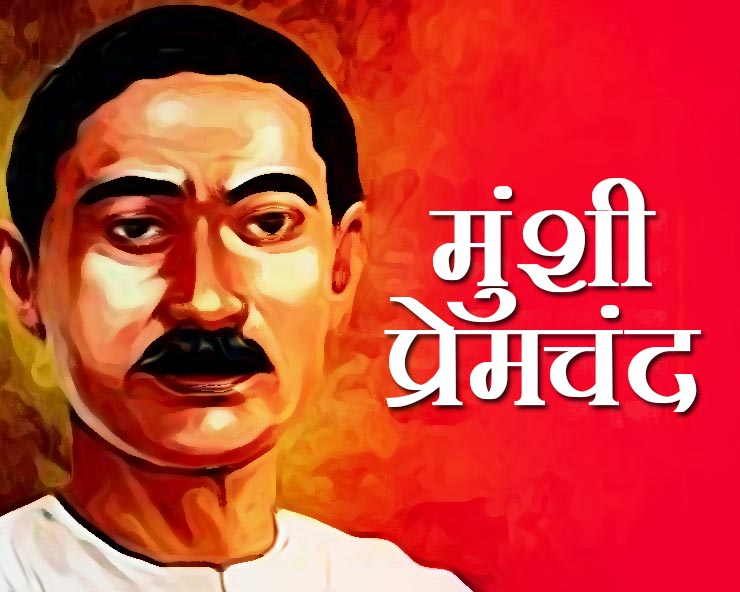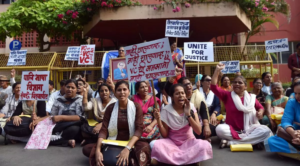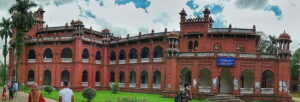31st July is Premchand Jayanti. The greatest of Hindi novelists and short story writers was born on this day. As a small boy, I grew up in two small towns of Bihar—Begusarai and Darbhanga, to be precise. And Premchand was an integral part of my growing-up years. I was a bright boy. I loved my textbooks and stood first in class. But some textbooks were more dear to me than others. Mathematics terrorised me. Specially, questions about a monkey climbing up a pole and then slipping again. I wondered why a small kid should worry about monkeys climbing up poles. Let monkeys do their job. But the Bihar State Textbook Corporation thought otherwise. I hated maths and maths teachers. But Hindi textbooks brought smile to my tiny lips. I loved them. And no Hindi book was complete without Dinkar’s poems and Premchand’s stories. And I was mesmerised by Premchand’s stories. They were written in simple Hindi. Even his picture in textbooks was reassuring.
With his salt-and-pepper hair, tiny moustache and dhoti-kurta, he looked like my relatives who lived in villages. Premchand was like a nana or a dada telling stories to tiny tots. And he lived a Spartan life. In a letter to his friend, Premchand said that he never craved for bungalows and cars. All he needed was dal–chapati and a spoonful of ghee. Modern doctors would have frowned upon Premchand’s love affair with ghee. Like Munni, ghee has also become quite badnaam nowadays. But those were good old days. Cholesterol was unheard of. And nobody bothered about clogged arteries. So, Premchand got away with his shuddh desi ghee and penned heart-warming stories. Most of his immortal stories were written on a broken khatiya (string-bed). Unlike modern writers who produce heaps of trash, writing on laptops in air-conditioned cafes!
Coming back to Premchand’s short stories, they are still embedded in my heart. Eidgaah is a story about a poor Muslim kid Hamid who buys a chimta for his old grandma because she burnt her fingers when making rotis. The story is so moving that I shed copious tears every time I read it. Premchand has depicted child psychology brilliantly. The way Hamid defends his humble chimta against fancy toys bought by his friends is heart-rending. And when the story ends, both Hamid’s dadi Ameena and the reader are in tears. Then there is Raksha Me Hatya, a story about two innocent kids who are so obsessed with protecting pigeon eggs that they finally break them! Noble intentions gone haywire.
Panch Parmeshwar is a story about two bosom friends Algoo Chaudhary and Jumman Sheikh and the dynamics of village panchayats. Algoo testifies against Jumman when Jumman’s old khala (aunt) accuses Jumman of ill-treatment. The panch (judge) should not let friendship come in the way of justice. In Namak Ka Daroga, an honest salt-inspector Munshi Vanshidhar refuses to succumb to temptation, loses his job but is honoured in the end by the same Pandit Alopideen who tried to bribe him. And who can forget Poos Ki Raat. A poor farmer Halku refuses to leave the warmth of fire even when his field is grazed by cattle.
Shatranj Ke Khiladi shows the decadent feudal culture of Lucknow. Mirza and Meer continue to play chess as the British forces march into Awadh. The legendary Satyajit Ray made a movie on this story. It is Ray’s only movie in Hindi.
Premchand himself was a starry-eyed idealist in his real life. Listening to Mahatma Gandhi’s call, he quit his government job. Premchand married a child-widow Shivrani Devi. His son Amrit Rai called him Kalam Ka Sipahi. Born as Dhanpat Rai, Premchand wrote in Urdu. When the British government seized his book Soz-e-Watan, he switched over to Hindi and took Premchand as his nom-de-plume.
Premchand taught me many things. His stories shaped my character. He made me a staunch secularist. I learnt that Algoo and Jumman can be bosom friends despite their different religions. If I regularly attend iftar at my Muslim friends’houses, the Algoo–Jumman friendship inspires me. He sowed in me seeds of empathy with the poor. I always see a Hamid in poor kids. And he taught me to stick to my principles, much like Munshi Vanshidhar, the incorruptible namak ka daroga. And lessons in simplicity.
A writer who ate simple dal–chapati but strode the world like a colossus. I salute you, Munshi Premchand. Koti – koti naman!
(Amitabh Kumar Das is a 1994 Batch IPS Officer.)




